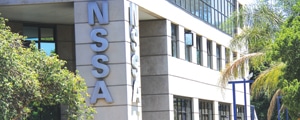
The Worker’s Compensation Insurance Fund, which is administered by NSSA, provides medical aid to cover medical treatment for occupational injuries and diseases.
In addition to the financial compensation for loss of earnings arising from accidental injuries at work or diseases attributable to the workplace, the Worker’s Compensation Insurance Fund (WCIF) pays for any medical expenses incurred as a result of an occupational injury or disease.
This includes hospital fees, doctors’ fees, medicines, appliances, ambulance fees and rehabilitation.
Medical expenses are paid in accordance with the Association of Healthcare Funders of Zimbabwe (AHFOZ) tariffs. As with most medical insurers, the fund does not cover amounts in excess of the AHFOZ tariffs.
Provided the medical treatment is for an injury that occurred while the person concerned was on duty at work or for a disease caused by the person’s occupation, all medical expenses are covered by the WCIF scheme, subject to the charges falling within the AHFOZ tariffs.
The WCIF is an insurance scheme intended to cover everyone in formal employment, with the exception of civil servants. The employer pays a monthly premium to NSSA for each employee.
When an employee is seriously injured at work or contracts an occupational disease, the employer must, after rendering first aid and transferring him/her to the nearest medical centre, inform the nearest NSSA office, using form WCIF 14 to provide the relevant details.
All accidents must be reported within 14 days, whether or not treatment has been completed. An injured employee is free to go to a medical practitioner of his/her choice. However, employees who move to another town or city are expected to change to a medical practitioner in the town or city where they now reside.
- Chamisa under fire over US$120K donation
- Mavhunga puts DeMbare into Chibuku quarterfinals
- Pension funds bet on Cabora Bassa oilfields
- Councils defy govt fire tender directive
Keep Reading
The WCIF will not pay for the travelling expenses involved in going back to the town or city the worker has moved from in order to see the medical practitioner who originally treated him/her.
In other words, if an injured worker moves from Harare to Bulawayo, he/she cannot travel back to Harare for treatment at the fund’s expense. The employee will be expected to seek a new practitioner in Bulawayo.
Travelling and subsistence allowance may be paid in connection with a worker’s journey to and from a place of treatment within Zimbabwe to which the worker was directed by his/her medical practitioner.
The fund pays for specialists, at AHFOZ rates, provided a referral has been made to the specialist by the hospital, general practitioner or NSSA Medical Doctor.
Payment for medical treatment or services outside the country can be paid for but only if that treatment is unavailable in Zimbabwe and prior authority for such treatment has been obtained from NSSA’s general manager.
The WCIF pays for drugs prescribed by a medical practitioner for the treatment of an occupational injury or disease.
However, the pharmacy invoice or receipt, whether presented to the fund for reimbursement by the employee or by the pharmacy, must be certified by the medical practitioner or NSSA Medical Officer as having been prescribed for treatment of the worker’s occupational injury/disease. It must also be supported by the prescription.
WCIF provides wheelchairs, crutches and other appliances for workers who have been seriously disabled as a result of an occupational accident or disease.
A requisition for such appliances should be supported by a referral from a suitably qualified medical practitioner.
Appliances should be obtained from the most suitable suppliers, bearing in mind availability, suitability, durability and price.
NSSA offers full rehabilitation services for injured employees at its well-equipped Workers’ Compensation Rehabilitation Centre in Bulawayo.
Vocational training is a key and integral part of the rehabilitation process. A seriously injured worker may, due to the nature of his/her disability, no longer be able to return to the same employment as before.
However, it may be possible to take up a different type of employment or become self-employed with the appropriate training.
NSSA’s rehabilitation centre offers training in carpentry, leather-craft, poultry rearing, market gardening, metalwork and tailoring.
Where a medical aid society has settled a claim for treatment for an injury caused by an occupational accident or for an occupational disease, the WCIF will reimburse the medical aid society, provided that full documentation is provided.
Talking Social Security is published weekly by the National Social Security Authority as a public service. There is also a weekly radio programme, PaMhepo neNssa/Emoyeni le NSSA, discussing social security issues at 6.50 pm every Thursday on Radio Zimbabwe and every Friday on National FM. There is another social security programme on Star FM on Wednesdays after 5pm. Readers can e mail issues they would like dealt with in this column to [email protected] or text them to 0772 307913. Those with individual queries should contact their local NSSA office or telephone NSSA on (04) 706517-8 or 706523 5.











